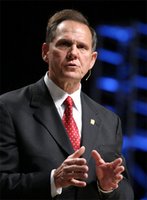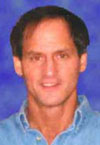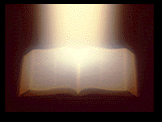Judge Moore files brief supporting 'In God We Trust'
Says Constitution never meant neutrality between religion and non-religion
Posted: November 30, 2006
1:00 a.m. Eastern
By Bob Unruh
© 2006 WorldNetDaily.com

The
Foundation for Moral Law has filed a friend-of-the-court brief in a lawsuit challenging the legality of the United States' motto "In God We Trust," saying "neutrality between religion and non-religion … is a myth lacking both logical and historical underpinnings."
The foundation, launched by former Alabama Supreme Court Chief Justice and now
WND columnist Judge Roy Moore, was set up by Moore after he was removed from his state judicial position for refusing to follow a federal order he believed unconstitutional – to remove a Ten Commandments representation from state property.
It exists to argue for and support the recognition of God in America, and that's why it entered the California case filed by Dr. Michael Newdow, who is suing because he claims the motto is an unconstitutional "establishment" of religion.
Moore's brief in the case notes that, "complete neutrality concerning religion in the public square does not exist and was never intended in our law." Neutrality between religions? Yes. But not neutrality between religion and non-religion.
"The primary author of the Declaration of Independence, Thomas Jefferson, observed that, 'No nation has ever existed or been governed without religion. Nor can be,'" the foundation document said.
In his weekly column for WND, Moore says the nation today is facing another challenge not altogether different from the night Francis Scott Key wrote the words to the Star-Spangled Banner, which include:
Blest with vict'ry and peace may the heav'n rescued landPraise the power that hath made and preserved us a nation!Then conquer we must when our cause it is just,And this be our motto – "In God is our Trust.""Our nation is under an attack that threatens our survival. This time an enemy from within seeks to destroy America's godly heritage and force us to surrender our public faith in God. We must withstand this bombardment by realizing that the shells of atheism lack the powder of truth and will not enjoy success if we stand together and fight! Then, when the smoke clears, the flag of our faith will be seen as a beacon to the rest of the world and our national motto as a testament to our trust in God," he wrote.
"The Declaration of Independence itself states that 'all Men are created equal' and are 'endowed by their Creator with certain unalienable Rights…'" Moore noted in the foundation brief. The U.S. Constitution itself, according to John Adams, does not create a "government armed with power capable of contending with human passions unbridled by morality and religion … Our constitution was made only for a moral and religious people. It is wholly inadequate to the government of any other," the foundation brief said.
The lawsuit was brought by Newdow, who earlier took a lawsuit alleging "under God" should be removed from the Pledge of Allegiance to the U.S. Supreme Court where he lost on a technicality, and he claims the motto violates the Establishment Clause.
Newdow, who says he has his own religious rights under his own "First Amendment Church of True Science," also has refiled his complaint over the Pledge, and that also now is pending.
The Foundation's interest in the case is that it believes "In God We Trust" is one of many public acknowledgments of God that have been "espoused from the very beginning of this nation."
"The Foundation believes that the government should encourage such acknowledgment of God because He is the sovereign source of American law, liberty, and government," the filing explained.
Statutes authorizing the motto "in no way violate the Establishment Clause of the First Amendment because the statutes do not conflict with the text of that Amendment, particularly as it was historically defined by common understanding at the time of the Amendment's adoption."
And the court's responsibility is to exercise its authority based on the text of the document from which that authority is derived, Moore said.
"The text of the Establishment Clause states that 'Congress shall make no law respecting an establishment of religion,'" the brief says. "When these words are applied to the statutes in issue, it becomes evident that the statutes and the phrase 'In God We Trust' do not dictate religion to anyone and do not represent a form of an establishment thereof. While this important statement about the religious conviction of the nation may offend someone, it properly expresses the spirit of 'We the People' as a whole and does not offend the First Amendment to the Constitution."
The legal filing, which acts in an advisory capacity for the court, endorsed the district court, which concluded there was nothing unconstitutional about the motto, basing the decision on a previous case that concluded, "[It] is quite obvious that the national motto and the slogan on coinage and currency 'In God We Trust' has nothing whatsoever to do with the establishment of reliion."
But the Foundation for Moral Law said the appeals court could go further. "To get the case completely right, this Court … should apply the words of the First Amendment according to their meaning when they were first adopted."
"Following the carefully crafted words of the Establishment Clause will yield the correct result in this case, save the Court from the headache of having to guess which test Supreme Court would employ to evaluate the constitutionality of the motto, and ensure that the Court is adhering to its oath to uphold the Constitution," the brief said.
Over the years various courts have set up "tests" to determine the constitutionality of such items, but Moore said all that's needed is the Establishment Clause itself.
Those tests "erroneously assume that the language of the Establishment Clause is not clear and that somehow judicially-fabricated tests will succeed where the original language has purportedly failed," the brief said. "However, the exact opposite is the case: jurisprudential experiments with various extra-textual 'tests' such as Lemon, the Endorsement test, and the coercion test have produced a continuum of disparate results."
The issue was addressed 150 years ago when the Senate Judiciary Committee, while considering the Congressional chaplaincy, said, "[The Founders] had no fear or jealousy of religion itself, nor did they wish to see us an irreligious people; they did not intend to prohibit a just expression of religious devotion by the legislators of the nation, even in their public character as legislators; they did not intend to spread over all the public authorities and the whole public action of the nation the dead and revolting spectacle of atheistical apathy."
"The neutrality that Newdow asks for is, in fact, a hostility toward religion by another name. Because this nation is so steeped in a tradition of recognizing God, to suddenly forbid expressions in the public square about God would place the government's imprimatur on atheism," the brief said.
"The motto, 'In God We Trust,' is an acknowledgment of God and His integral role in the life of the nation. It contains a 'religious' element, but it does not represent a 'religion'' under the Establishment Clause."
Justice Joseph Story in his Commentaries on the Constitution said the real object of the amendment was "to prevent any national ecclesiastical establishment."
The case is being defended by the U.S. Justice Department and
Pacific Justice Institute.PJI chief counsel Kevin Snider earlier told WND his documents already had been filed.
"We better take this one seriously," constitutional attorney Herbert W. Titus told D. James Kennedy's
Coral Ridge ministry. "Otherwise, we're going to see a very strong erosion of the references to God at the federal level."
The radical elimination of those references already has been under way for some years, as WND reported in a story about the
U.S. Supreme Court changing its official description of stone tablets in the artwork within the very chamber where decisions are delivered. As recently as 20 years ago, they were officially the Ten Commandments. Now they are the Ten Amendments.
Newdow has admitted that references such as the motto do not require him to believe in God, but he told WND he still wants to eradicate the historic motto in public places and instead install his own belief system that does not acknowledge God.

He said his goal is to have "the government treat everybody's religious views equally."
Snider warned if Newdow is successful, there could be a ripple across the land for years to come. Even the Constitution's own reference that it was done "in convention … in the year of our Lord" 1787, apparently could be considered "unconstitutional" under that reasoning, observers said.
Also filing amicus briefs in the case were several other Christian and civil liberties organizations, including the national public-interest
Thomas More Law Center and the
American Center for Law and Justice."The Establishment Clause was never intended as a guarantee that a person will not be exposed to religion or religious symbols on public property, and the Supreme Court has rejected previous attempts to eradicate all symbols of this country’s religious heritage from the public’s view," the ACLJ's brief argued. "Although enterprising plaintiffs can find support for just about any proposition in the Court's multifarious Establishment Clause pronouncements, a claim that the national motto violates the First Amendment borders on frivolous."
 In a major victory for backers of San Diego's Mt. Soledad cross, an appeals court ruled today in favor of a voter measure that authorized transfer of the land beneath the memorial to the federal government.
In a major victory for backers of San Diego's Mt. Soledad cross, an appeals court ruled today in favor of a voter measure that authorized transfer of the land beneath the memorial to the federal government.






